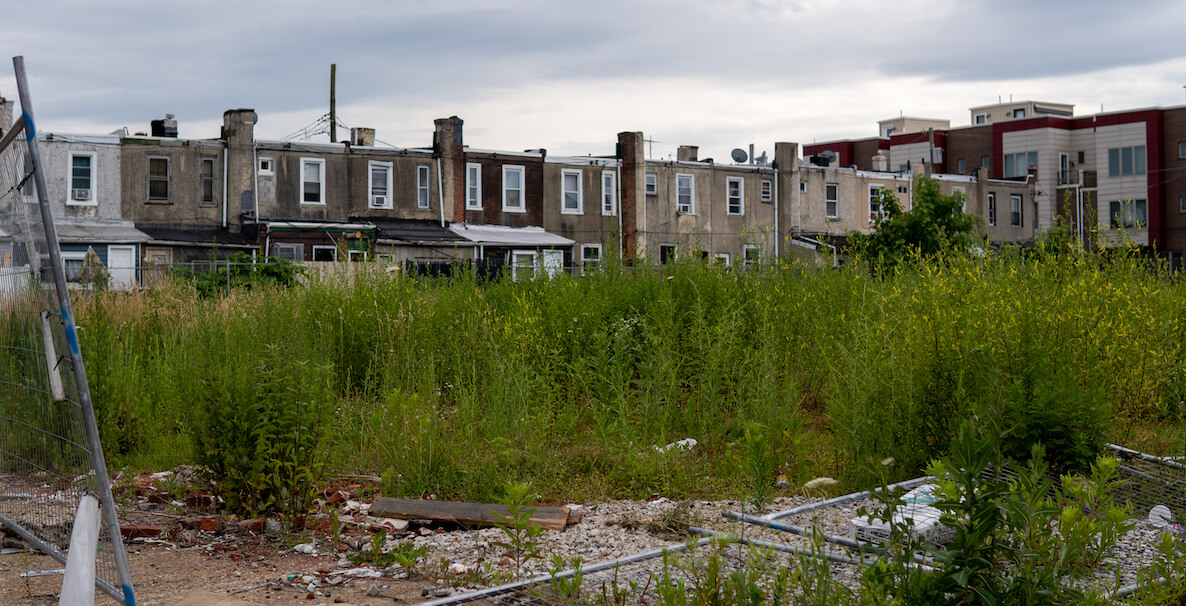Just a few decades ago, many of Philadelphia’s tax-delinquent buildings and lots were post-industrial junk that had little or no market value. Some of these properties were — and still are — sold at the Sheriff’s tax foreclosure auction, with auction proceeds used to pay the property owner’s overdue taxes (or, overdue taxes on the property). When the process works, the winning bidder gets clear title to the property (although title insurance will not be available for a year, and there may be other complications).
The Sheriff’s Office administers the auction (through an intermediary) but does not — and is not allowed to — take into consideration the winning bidder’s development plans, if any, or capability to maintain the property.
Although the tax foreclosure process has remained largely unchanged over the years, Philadelphia’s real estate market has changed a lot. Even in today’s uncertain economic environment, new construction ventures are proposed or underway at vacant or deteriorated sites that had been regarded as having little market potential years earlier.
That’s why the next mayor should consider taking over the tax foreclosure component of Sheriff Sale as part of an entrepreneurial asset-management strategy that would be administered by the Philadelphia Land Bank.
This takeover could be accomplished without the need for legislation or negotiation — simply by making use of a provision in the state’s land bank legislation (§2117.(d)(5) of Act of Oct. 24, 2012, P.L. 1239, No. 153Cl. 68) that enables a land bank to acquire any number of the properties offered at a particular tax sale auction by submitting a single bid.
It’s not complicated: At each tax foreclosure sale, the Philadelphia Land Bank would submit one bid for all of the vacant properties listed (no occupied properties). At that point, as specified in the state land bank legislation, no other bids would be considered.
Then, after the sale date, the Land Bank could begin to make rational decisions about which vacant properties would be resold to pre-qualified developers or other buyers, which ones would be conveyed for City-sponsored projects, which ones would be made available for greening programs and open-space improvements, and which ones would be held as surplus inventory for the time being.
These structural and process changes would be challenging to organize, manage, and finance; and there are strings attached. One important one: the Land Bank would have to pay off School District tax liens and some City tax liens associated with each property. But this approach has the potential to produce significant new value for Philadelphia’s neighborhoods — more so than the current random transfer of properties to whoever happens to show up at sheriff’s sale.
The period between this month’s primary election and the beginning of a new mayoral term in January will provide more than enough time to research the costs and benefits associated with this approach and to make realistic decisions about whether and how the City should move ahead.
John Kromer’s book, Fixing Broken Cities: New Investment Policies for a Changed World, was published this spring.
The Citizen welcomes guest commentary from community members who represent that it is their own work and their own opinion based on true facts that they know firsthand.
![]() MORE ON DEVELOPMENT FROM THE CITIZEN
MORE ON DEVELOPMENT FROM THE CITIZEN
Photo by Theo Wyss-Flamm.



